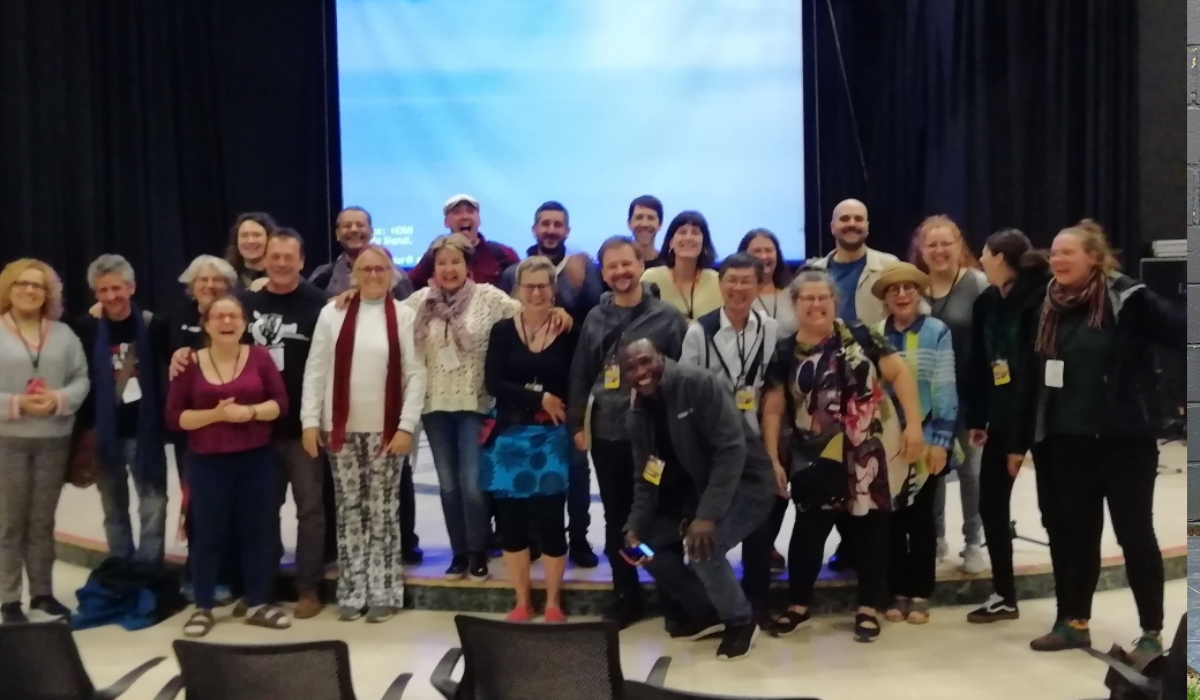Pilot Group 2022 – Quebec
Two testimonies of the representatives from Spain, Idoia Martinez de Lahidalga, and from Brazil, Veronica Muller.
Idoia Martinez de Lahidalga, Street Educator in IRSEARABA, Vitoria-Gasteiz – Basque Country and representative of DYNAMICA Spain.
During the week of May 28 to June 4, IRSEARABA participated in the international meeting on street education in Quebec (Canada) as part of its supra territorial projects and as part of the Municipal Street Education Program.
16 countries – Chad, Tunisia, Vietnam, Belgium, France, Portugal, Slovenia, Austria, Haiti, Guatemala, USA, Brazil- members of Dynamo International, the international network of street educators, took part in this meeting which addressed issues such as the challenges we have as street teams in the societies in which we find ourselves, the methodologies we use to intervene, the need for social links, multidimensional poverty and inequalities between countries. These were 3 intense and exciting days of long hours of reflection for the creation of common discourses and an action plan for the next 3 years.
Unfortunately, not all countries in the Network have been able to be represented because of the difficulties related to covid and visas, that is, the difficulty people in the South have in getting to the North. an inequality gap that remains today and is linked to growing inequalities among vulnerable populations in countries with poorer health systems and in countries facing existing humanitarian crises.
Similarly, over the past two days, we participated in the meeting of the network of street educators from the province of Quebec who are members of the ATTRueQ, which, with more than 250 people, reflected on the need to connect from non-formal education and the socio-educational relationship in living spaces.
The conclusions of the week were enriching, starting with the realization that the world is changing radically and that we must work together, since we are a collective with a very strong identity. In the face of systemic and institutional forms of violence, our role is to denounce them collectively, creating common political discourse.
Similarly, we must work with institutions, because the plurality of perspectives is important and because street education teams are, in many cases, the link between institutions, society and the person. In addition to being able to promote the creation of spaces of participation with vulnerable populations and that their voice is heard and taken into account in the areas of decision-making. Thank you ATTRueQ for the welcome!
Testimonial by Veronica Muller, representative of Brazil and co-coordinator of Dynamo Americas
There is a belief among all educators that those who work with street populations must be very well trained. Politics for the street population must be a right of all citizens and not a policy of misery for the poor. I remember that the community of street educators is a huge city, with common concerns. We are attentive to everything that happens on our streets. We have a place in society and we must preserve it. This place is legitimate. It must be recognized as such. Our job is to reconcile by saying: humanity is complicated, as long as we are here, let us try to do something for the good.
I fought for my visa. I got my passport back 24 hours before I got on the plane. I knew it was worth it, but it far exceeded my expectations.
I realized that Quebecers and Brazilians have this in common: we smiled a lot and laughed a lot. But you laugh harder!

